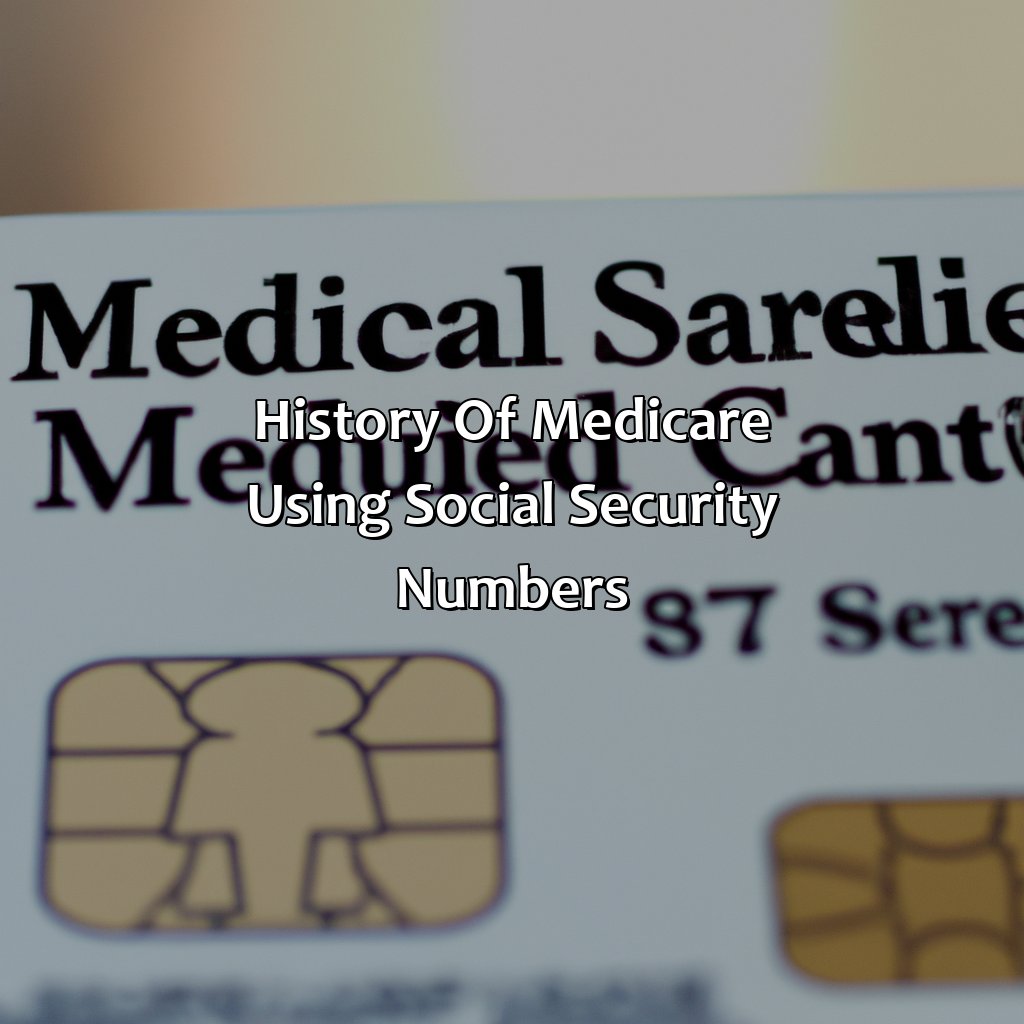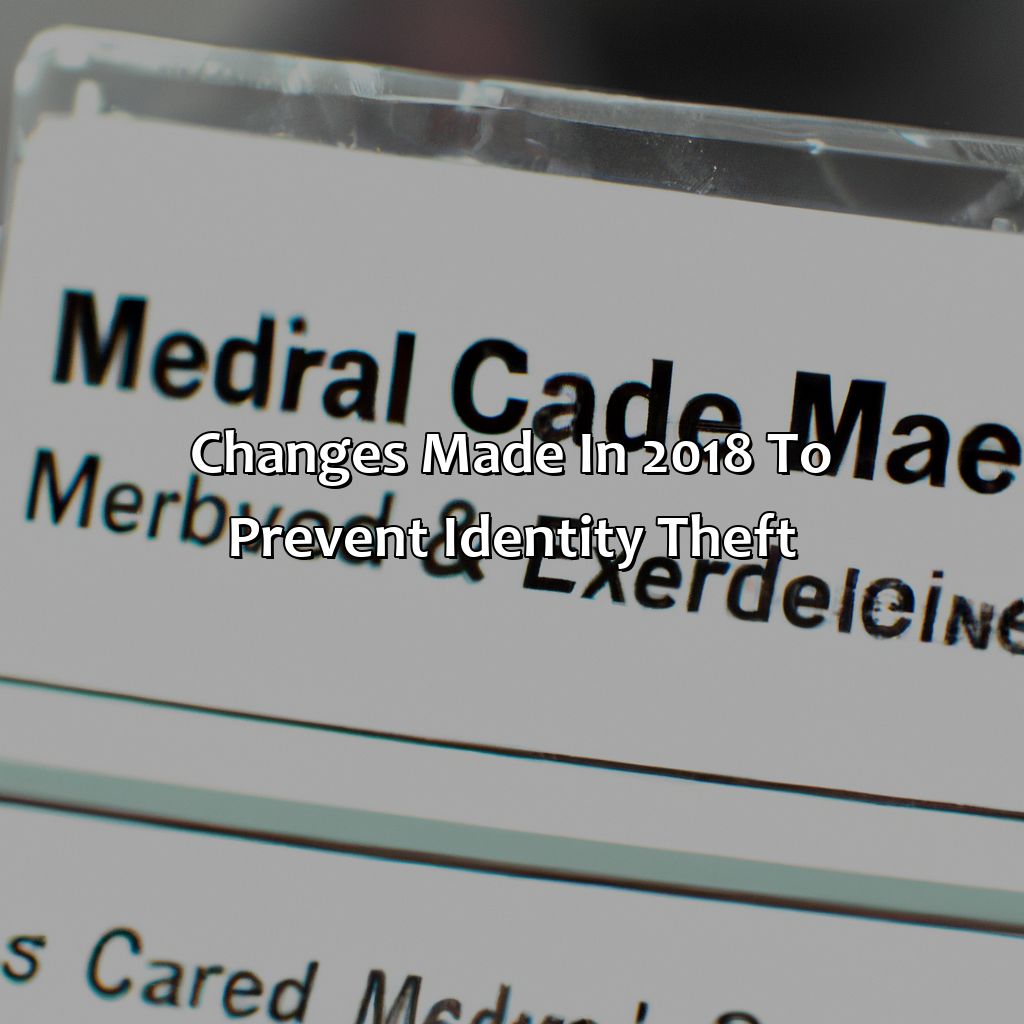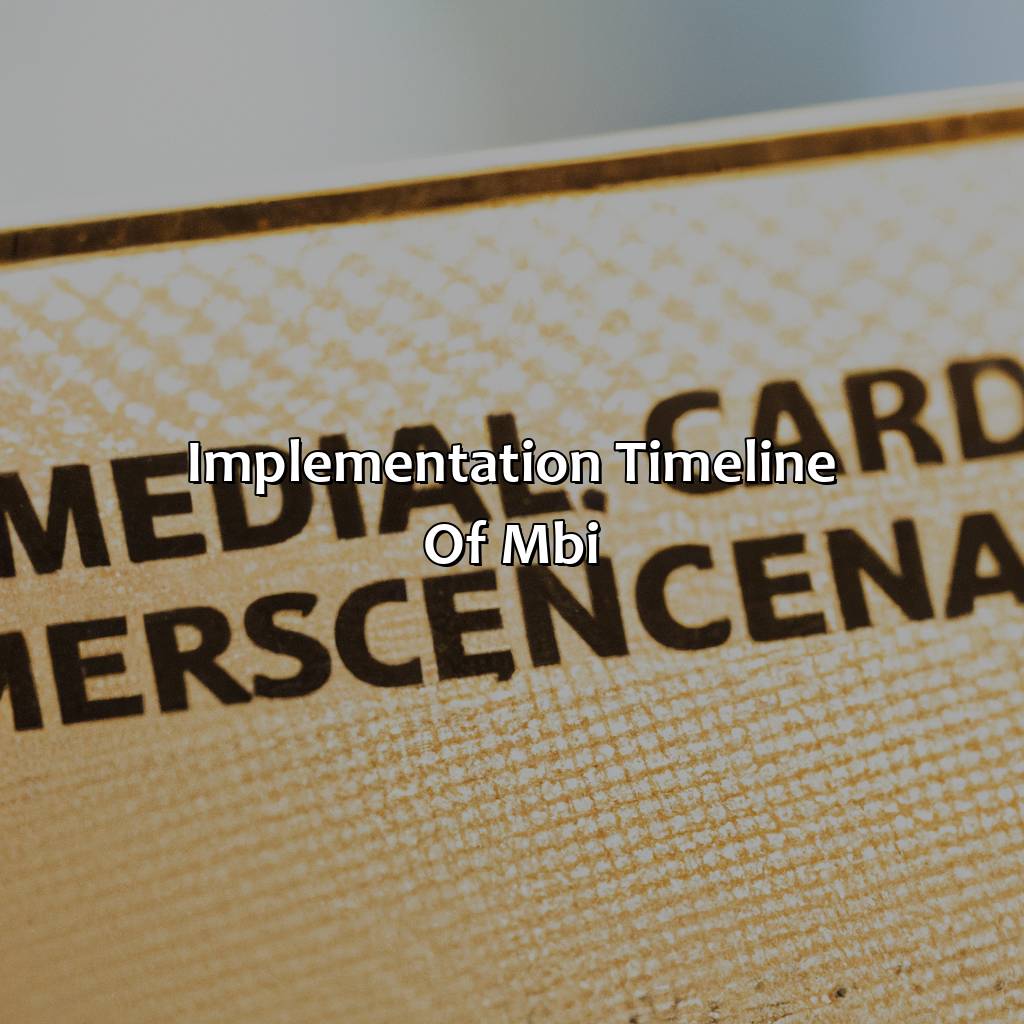When Did Medicare Stop Using Social Security Numbers?
Key Takeaways:
- Medicare stopped using Social Security Numbers (SSN) as identifiers in 2018 as part of efforts to prevent identity theft and fraud.
- The Medicare Beneficiary Identifier (MBI) replaced the SSN-based Health Insurance Claim Number (HICN) as the new identifier for Medicare beneficiaries.
- The implementation of MBI started in April 2018 and was completed by January 2020, which means that all Medicare beneficiaries should have received their new cards with the MBI.
Are you wondering when Medicare stopped using Social Security numbers? Don’t worry! Our article provides an in-depth explanation of when the transition to the Medicare Beneficiary Identifier was made and the reasons behind it. You’ll be able to make sure your personal information is kept secure.
History of Medicare using Social Security Numbers
Medicare’s Utilization of Social Security Numbers
Medicare has been utilizing social security numbers as an identifier since its inception in 1965. However, in an effort to combat identity theft and fraud, the Centers for Medicare and Medicaid Services (CMS) began phasing out the use of social security numbers in 2018.
To achieve this, CMS began issuing new Medicare cards that no longer display social security numbers. Instead, they feature a unique, randomly generated Medicare Beneficiary Identifier (MBI) that is only known to the patient and their healthcare providers.
These new cards were distributed to all Medicare beneficiaries by April 2019. However, healthcare providers were given a transition period to adjust their systems and billing practices to accommodate the new MBIs.
Pro Tip: To protect yourself from identity theft, be cautious when giving out personal information and keep your Medicare card in a safe place. If you lose your card or suspect it has been stolen, contact CMS immediately to get a replacement.

Image credits: retiregenz.com by Adam Jones
Changes Made in 2018 to Prevent Identity Theft
2018 saw changes to protect patients from identity theft. Medicare Beneficiary Identifier (MBI) replaced the Social Security number. Also, Health Insurance Claim Number (HICN) no longer used SSN. These changes are beneficial to Medicare beneficiaries.
There are several reasons why these changes are beneficial to Medicare beneficiaries. First and foremost, since SSN is no longer used, there is a lower risk of identity theft and fraud. MBI is a unique identification number that is used to identify Medicare beneficiaries, and it does not reveal any personal information. In addition, with MBI, beneficiaries no longer have to carry their Social Security card, which is one less item to worry about losing or misplacing.
These changes also benefit health care providers. Previously, HICN-based systems were used for Medicare transactions, which necessitated significant updates to old systems. This resulted in issues with delays and errors. However, using the new MBI system, claims processing is expected to be quicker and more accurate.

Image credits: retiregenz.com by James Woodhock
Medicare Beneficiary Identifier (MBI)
The new identification system that Medicare is using for its beneficiaries is known as the MBI. Rather than linking a person’s social security number to their healthcare information, the MBI uses a unique 11-character identifier to protect against identity theft and fraud. The MBI is not only more secure but also less sensitive to changes in the beneficiary’s personal data such as name changes, making it easier and more efficient to use.
As of April 2019, all Medicare beneficiaries have been issued an MBI card, which includes the new identifier. Beneficiaries must provide their MBI when receiving healthcare services to ensure proper billing and tracking of their medical records. Additionally, healthcare providers must use the MBI on all claims submitted to Medicare.
Using an MBI instead of a social security number drastically decreases the chances of identity theft and fraud since MBIs are harder to guess or obtain illegally. However, individuals should still be vigilant about protecting other sensitive information such as their date of birth and financial information. Beneficiaries can further protect themselves by being wary of unwanted or unsolicited calls or emails requesting personal information.
Thus, switching from social security numbers to MBIs is a positive step towards preventing identity theft for Medicare beneficiaries. It’s important for individuals to understand how the new system works and take steps to protect themselves from any potential cyber threats.
Looks like identity thieves need to find a new favorite number, because medicare just kicked SSN-based HICNs to the curb.
Removal of SSN-based Health Insurance Claim Number (HICN)
The government made necessary changes to prevent identity theft by removing SSN-based Health Insurance Claim Numbers (HICN) in 2018. Instead, these were replaced with a unique Medicare Beneficiary Identifier (MBI). The main reason for this change was to safeguard individuals from fraud and to protect their sensitive information. This transition not only helps beneficiaries but will also make it easier for healthcare providers to share health records more securely.
Additionally, the Centers for Medicare & Medicaid Services (CMS) issued new cards that have MBI numbers instead of social security numbers in April 2018. These new cards have improved protections against identity theft and are more secure than the previous ones.
It is important to note that beneficiaries need to start using their new MBI number as soon as they receive their card because health care providers must use it when submitting claims by January 1, 2022. Finally, sources reveal that more than one million fraudulent Medicare claims based on social security numbers did not get approved because of these changes.
MBI implementation timeline: because waiting until the last minute is the best way to prevent identity theft, right?
Implementation Timeline of MBI
The Historical Development of MBI
Since 2018, the Centers for Medicare & Medicaid Services (CMS) have been issuing new Medicare cards with a unique Medicare Beneficiary Identifier (MBI) instead of the Social Security Number (SSN). This transition is a significant milestone in securing beneficiaries’ vital information.
A Step-by-Step Guide of MBI Implementation
- The CMS started mailing new Medicare cards to active enrollees between April 2018 and April 2019.
- From May 2018 to December 31, 2019, both the MBI and SSN could be used, but MBI was required for billing starting from January 1, 2020.
- Between January 2020 and December 31, 2022, CMS will accept and process both MBIs and SSNs, but providers must use MBIs for billing.
- Effective January 1, 2023, CMS will only use MBIs, and SSNs will no longer exist in the CMS’s system.
- The CMS administers a secure portal where providers, suppliers, and billing agencies can check the MBIs for any beneficiary.
Additional Details on MBI Implementation
MBI is a randomly generated 11-digit number, unique to each beneficiary. The transition is cost-effective, considering that prior to MBI, CMS had been using SSNs since the inception of Medicare in 1965. CMS continuously educates beneficiaries on the importance of protecting their MBIs and avoiding identity theft.
Suggestions on MBI Implementation
To ease the MBI implementation process, providers should integrate their systems with CMS’s secure portal for efficient MBI verification. Additionally, providers can educate their patients on the importance of carrying their updated Medicare cards and keeping them secure. This can prevent lost cards and potential fraud.

Image credits: retiregenz.com by James Woodhock
What Medicare Beneficiaries Need to Know
Medicare now uses unique Medicare ID numbers instead of Social Security Numbers for beneficiaries. These ID numbers contain a combination of alphabets and numeric digits. To obtain an ID number, beneficiaries must visit the official Medicare website, call the toll-free number, or contact their state’s social security office.
The transition from Social Security Numbers to Medicare ID Numbers began in 2018 and was fully implemented in 2019. Pro Tip: Protect your sensitive personal information by avoiding sharing your Medicare ID number with anyone except trusted healthcare providers.

Image credits: retiregenz.com by Yuval Woodhock
Five Facts About When Medicare Stopped Using Social Security Numbers:
- ✅ Medicare stopped using Social Security numbers as identifiers on Medicare cards starting in April 2018. (Source: Centers for Medicare & Medicaid Services)
- ✅ The new Medicare cards now have a unique Medicare number that is used for billing and identity verification. (Source: Centers for Medicare & Medicaid Services)
- ✅ The change was made to help prevent identity theft and protect sensitive information of Medicare beneficiaries. (Source: AARP)
- ✅ Medicare beneficiaries were automatically issued new cards with the updated identifier, and the transition was completed by April 2019. (Source: Centers for Medicare & Medicaid Services)
- ✅ The updated Medicare cards also have new designs and features to make them easier to read and use. (Source: Centers for Medicare & Medicaid Services)
FAQs about When Did Medicare Stop Using Social Security Numbers?
When did Medicare stop using social security numbers?
As of April 2018, Medicare stopped using social security numbers as the primary identifier for beneficiaries due to concerns about identity theft and fraud. They have since been replaced with a unique Medicare Beneficiary Identifier (MBI) number.
What is a Medicare Beneficiary Identifier (MBI) number?
A Medicare Beneficiary Identifier (MBI) number is a randomly generated 11-digit number used to replace the social security number on Medicare cards. It is unique to each beneficiary and contains no personally identifiable information like social security numbers.
Do I need to do anything to get a new Medicare card with my MBI number?
No, Medicare automatically mailed new Medicare cards with the MBI number to all beneficiaries between April 2018 and April 2019. If you did not receive your card, you can contact Medicare to request a replacement.
How does the MBI number protect against identity theft and fraud?
The MBI number does not contain any personally identifiable information like social security numbers or dates of birth, making it harder for criminals to steal a person’s identity or commit fraud. Additionally, Medicare has implemented various security measures to protect against unauthorized access and use of MBIs.
Can I still use my social security number with Medicare?
While you should never share your social security number with anyone unnecessarily, you may need to provide it to certain healthcare providers or insurance companies in certain circumstances. However, you should always verify why your social security number is needed and how it will be protected before providing it.
What should I do if I suspect that my Medicare information has been compromised?
If you suspect that your Medicare information has been compromised, you should immediately contact Medicare and report the incident. Medicare has various resources and tools to help beneficiaries protect against identity theft and fraud, including a toll-free hotline and a fraud reporting tool on their website.


